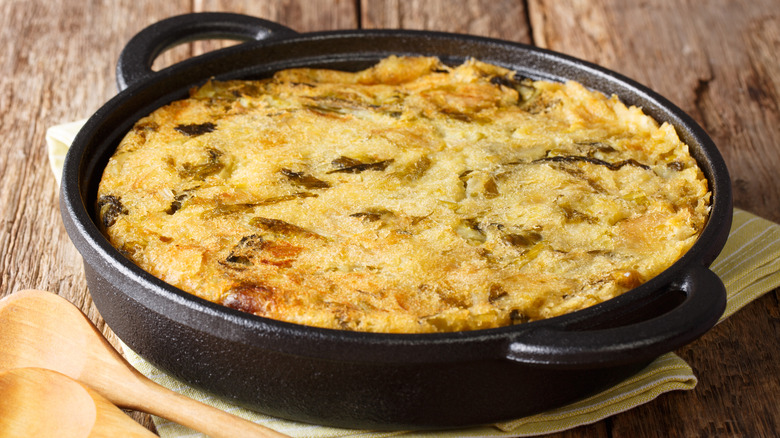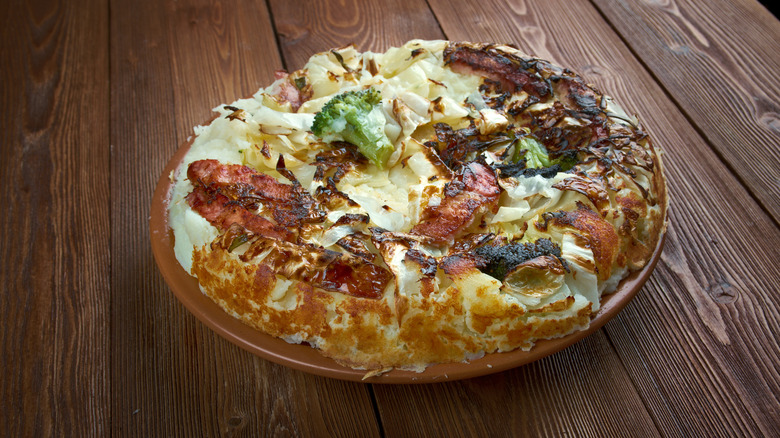How The British Food Bubble And Squeak Got Its Name
No visit to the British Isles would be complete without sampling an array of vividly named foods like 'spotted dick,' and 'bubble and squeak.' The latter is a mixture of vegetables, and while it typically contains potatoes and cabbage, any combination of vegetables may be used (via Britannica). The whole assortment comes together in a pan to form a hearty mash, and while you may be able to order it at some pubs, you really need to make your own if you want to understand where the name comes from.
Many people think that 'bubble and squeak' refer to the two principal ingredients of the dish: potatoes and cabbage, but this is not the case. In fact, the original version of bubble and squeak didn't even have potatoes (via British Food History). It began as a way to repurpose leftover cuts of meat from pot roast, and the traditional base was boiled beef, either thinly sliced or chopped.
Listen to the pan
According to British Food History, the form of bubble and squeak that people know and love today actually didn't even exist until World War II. Gripped by an economic crisis and dealing with issues related to food scarcity, Brits began to replace the beef base of the classic dish with cheaper portions of potatoes.
While some could have argued that a name change was in order, the meal had already gone by the name of 'bubble and squeak' for over a century before that, and there was simply no changing it. The first recorded mention of the dish can be found in the 1806 cookbook, "A New System of Domestic Cookery," by Maria Eliza Rundell. Her exceedingly simple recipe includes only five ingredients (beef, cabbage, salt, pepper, and butter) and no measurements.
According to Britannica, the name 'bubble and squeak' is popularly attributed to the sound that the ingredients make when you add them all to the pan. The cabbage is the main culprit in this respect, due to its water content. Cabbage is approximately 92% water, per Healthline, which releases as the cabbage wilts, bubbling and sputtering in the hot pan. The appeal of the name 'bubble and squeak' is a matter of opinion, but if you don't fancy it, you can always call the dish by its Scottish name, 'rumbledethumps' (via Britannica).

